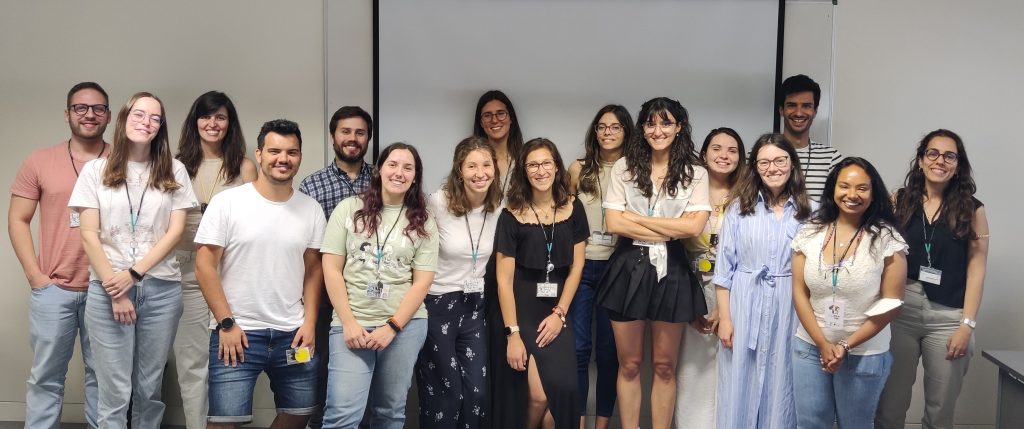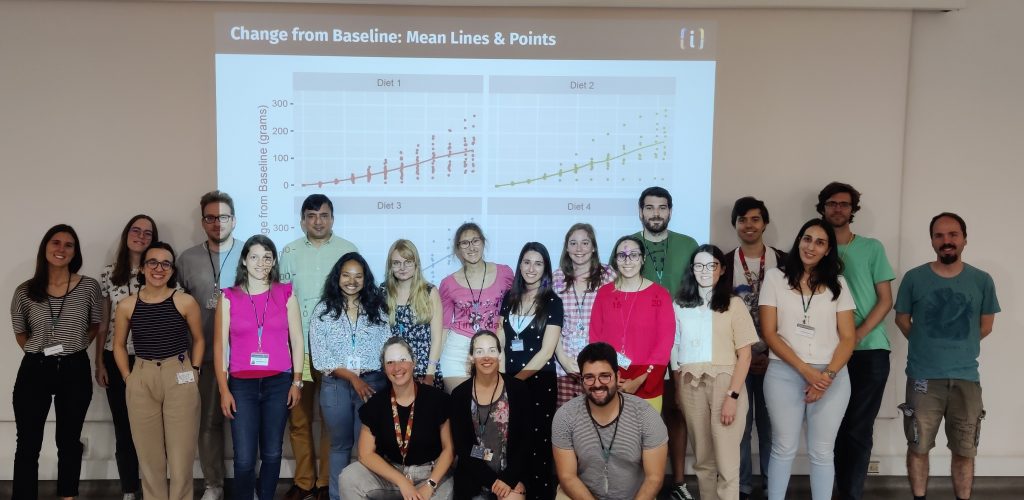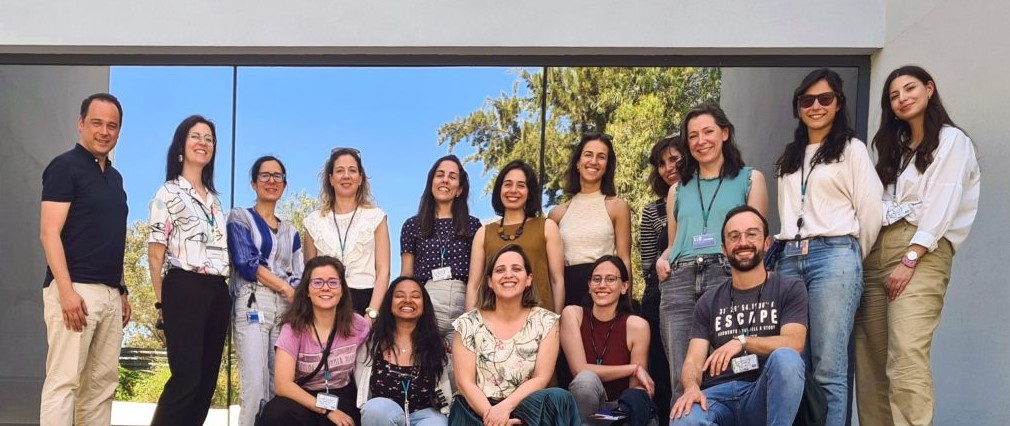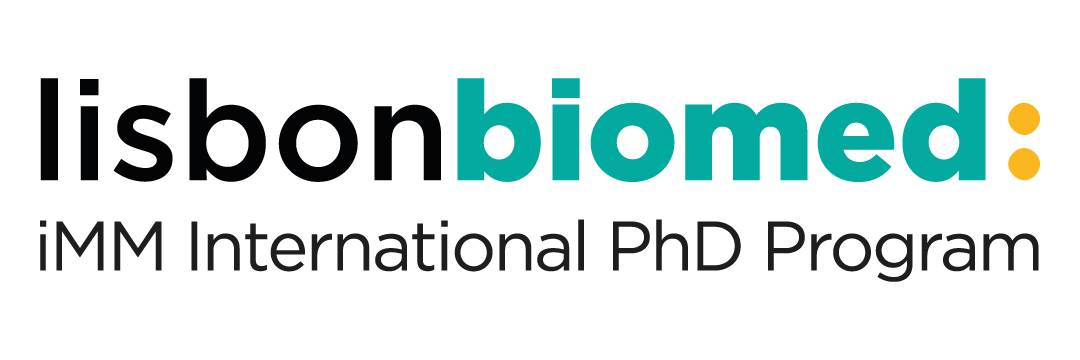Workshops 2023
Graphical Design
Helena Pinheiro, iMM | June 22nd
iMM PhD Students Workshop Committee
«This workshop aims to teach the necessary techniques to elaborate scientific images, figures, schemes, and graphical abstracts for any scientific communication (oral presentations, posters and publications). On this workshop, the students have the opportunity to learn how to optimize the process of figure building and how to make it more appealing without losing the focus on the main scientific conclusions. Moreover, this is a very hands-on workshop, where everyone has the opportunity to improve figure/images/schemes related with their own work while using the software Illustrator by Adobe.»
The Graphical Design workshop was hosted by our own Helena Pinheiro. Helena is a science communicator with a scientific background and a PhD in Cellular and Molecular Biology, who specialized on translating and sharing science through visuals. She is currently a science communication officer at iMM, where she is responsible for creating diagrams and illustrations for scientific publications, research grant proposals, institutional documents, and more, all aiming to contribute to a clear communication of science.

Statistical Thinking
Saghir Bashir, Ilustat | June 15th
iMM PhD Students Workshop Committee
«This workshop gives an overview of statistical thinking as applied to clinical research and medicinal sciences. Using the CONSORT Statement, the participants are encouraged to interact and discuss about what makes a clinical trial (or an experiment) good in the statistical sense. The focus of the workshop is on asking questions and getting answers to understand the “statistical thinking” that goes into trials and experiments. The workshop covers (notionally): Summary statistics, including measure of location, spread and correlation; Good practice for study design and sample selection; Understanding data “uncertainty/variability”, i.e., confidence intervals and hypothesis testing and p-values; Sample size and power calculation; Statistical thinking in real-world scenarios and structured critical thinking.»
The Statistical Thinking workshop was given by Dr Saghir Bashir, a statistical consultant at ilustat, a data science consulting and training company. He is also a member of Centro de Estatística e Aplicações de Universidade de Lisboa (CEAUL). Saghir has a PhD in Biostatistics and Epidemiology from the University of Cambridge and has been involved in numerous real-life data science projects across both the public and private sectors. His extensive international experience is built on his pragmatic and collaborative nature. A natural communicator, Saghir actively engages his audience during his presentations, courses, and workshops, fostering an interactive and enriching learning experience.

Responsible Research and Innovation
Rita Gil Mata, Chaperone | April 17th, 18th and 19th
EpiEpiNet
“Responsible research and innovation (RRI) guides research and development in ethically appropriate ways. It ensures that social as well as commercial benefits are harnessed; and that any harm to the social and physical environment is obviated or minimized.” [GREAT Project]
«During the first two days of the workshop, participants get insight and discuss some of the pillars of Responsible Research and Innovation including Gender Equality, Public Engagement, Open Science and Science Education, Good Governance. In the last day of the course, participants discuss examples on how to implement RRI in institutions/projects and, particularly, to ongoing and future projects at iMM.»
The Responsible Research and Innovation workshop was given by Dr Rita Gil Mata, an Responsible Research and Innovation Expert, Senior Consultant of EU Funding, and Grant Writer, in behalf of Chaperon. With a degree in Psychology and a PhD in Work Psychology from the University of Porto, Rita has 16+ years of experience as Funding Advisor for Research and Innovation, having worked with public and private Research Performing Organizations, such as Universities, Research Centres and non-for-profit Associations. Despite having worked in all phases of a project’s cycle, she is specialized in pre-award and strategic alignment with various European research funding programs (FP6, FP7, Horizont2020, ERASMUS +, COST, EUREKA, Eurostars, EIT, JUSTICE, REC, EEA Grants,…). Rita is also a certified trainer in Responsible Research and Innovation, as well as in Ethics & Research Integrity.


